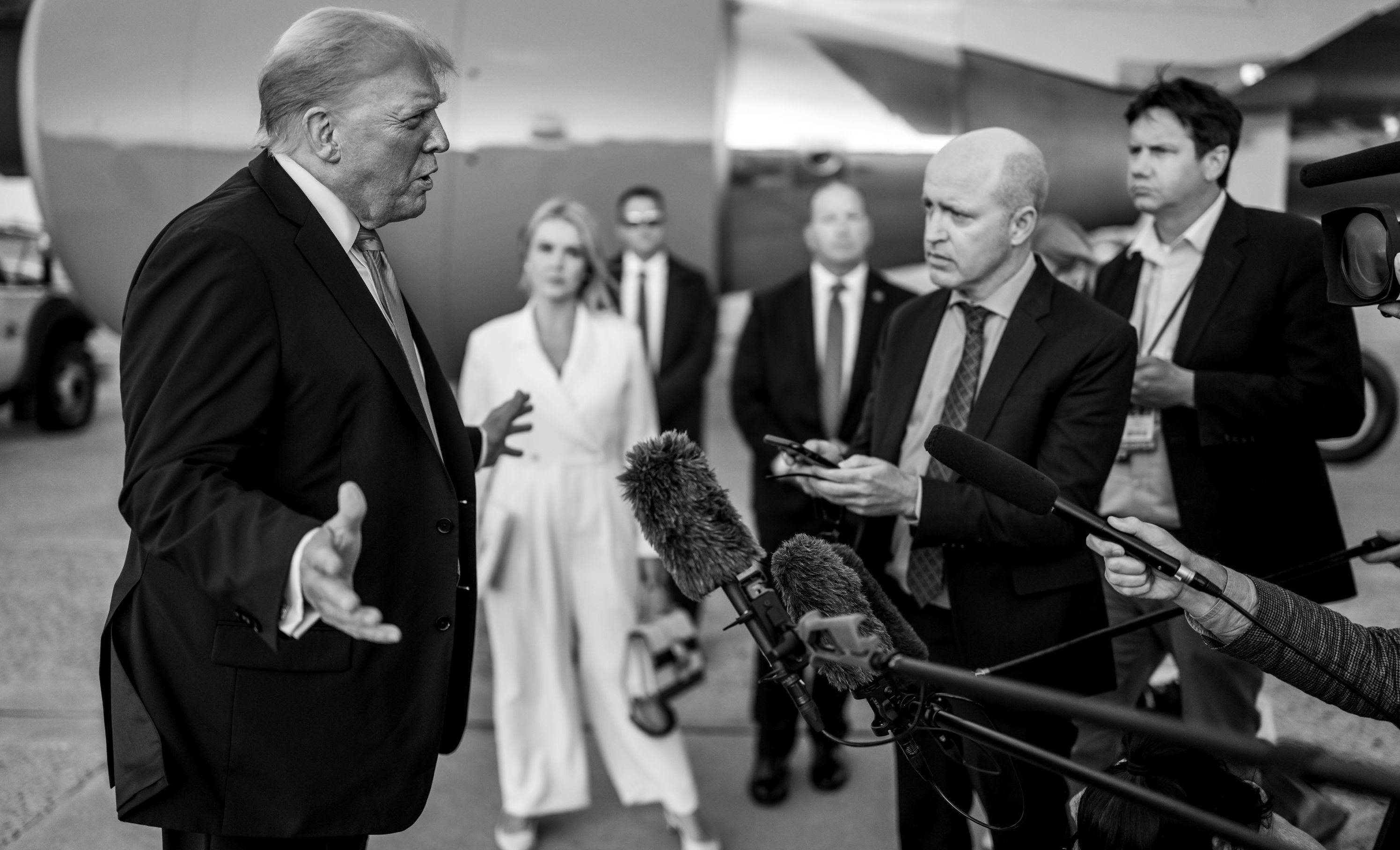President Donald Trump told reporters outside a Washington restaurant Tuesday evening that he is deeply displeased with Israel’s bombardment of Qatar, a close U.S. partner in the Persian Gulf that, at Washington’s request, has hosted Hamas’s political leadership since 2012.
“I am not thrilled about it. I am not thrilled about the whole situation,” Trump said, denying that Israel had given him advance notice. “I was very unhappy about it, very unhappy about every aspect of it,” he continued. “We’ve got to get the hostages back. But I was very unhappy with the way that went down.”
Trump may indeed be upset, but the Israeli Prime Minister is casting him in the same light as Biden: issuing indignant statements over Israeli actions that blatantly undermine U.S. interests, actions that almost certainly could not have occurred without Washington’s tacit consent, while offering no hint that Israel will face consequences for allegedly defying the United States.
To make matters worse, Qatar’s foreign minister revealed that Washington’s so-called warning came not before the Israeli strike, but only after Doha was already under fire.
“The attack happened at 3:46,” Sheikh Mohammed bin Jassim Al Thani said. “The first call we had from an American official was at 3:56 — which is 10 minutes after the attack.”
Whether Washington knew of Israel’s war plans, colluded in them, or whether Trump is truthful in claiming ignorance, the outcome is the same: Israel has dealt a severe blow to American credibility.
What value does an American security umbrella—or even the hosting of a U.S. base—hold if the United States either conspires in an attack against you, or proves unwilling or unable to prevent one?
That is the question now confronting every U.S. partner in the Persian Gulf, all of whom have staked their survival on American protection. Given how Washington has stripped away every meaningful constraint on Israel since October 7, 2023, their leaders should have known this day was inevitable.
Personally, I do not believe the United States should extend security guarantees — implicit or explicit — to any state in the Middle East. The region is no longer vital to U.S. interests, and America is already dangerously overextended. Existing commitments should be reassessed and, where necessary, rolled back. But this must be done deliberately and on Washington’s terms — not sabotaged by Israel — because the point of the exercise goal is to strengthen the credibility of America’s essential commitments, not to erode U.S. credibility across the board.
Adding insult to injury, Israel has undercut not only the credibility of America’s security guarantees but also its diplomatic standing. This marks the second time this year that Israel has exploited the cover of U.S.-led diplomacy to launch unlawful military action — the first being its strike on Iran in the midst of nuclear talks in June.
Israel may see clear advantages in eroding the credibility of American diplomacy. An America unable to negotiate is an America forced to follow Israel’s lead into reckless military adventures that run counter to U.S. interests. For Washington, this is nothing short of disastrous.
The question now is how Trump will respond. If his claim is true — that he neither received a heads-up nor colluded with Israel — then expressions of displeasure are meaningless unless paired with real consequences for Israel’s repeated sabotage of U.S. interests.
Since late May, Trump has capitulated to Netanyahu on virtually every front — from Iran to Gaza to Lebanon — consistently at America’s expense. This humiliating deference has only emboldened Netanyahu, making him ever more dismissive of Trump and U.S. priorities, culminating in the brazen strike on Doha.
Perhaps this episode will force Trump to recognize the folly of outsourcing American policy in the Middle East to Israel. Only he has the power to reverse course.
This article was republished with permission from Trita Parsi's substack
- After bombing, time to demystify the 'Qatar lobby' ›
- Israel brazenly bombs Qatar, U.S. ‘partner’ and host of 10000 American troops ›
- Gaza plan: Looks Like peace, acts like occupation | Responsible Statecraft ›
















